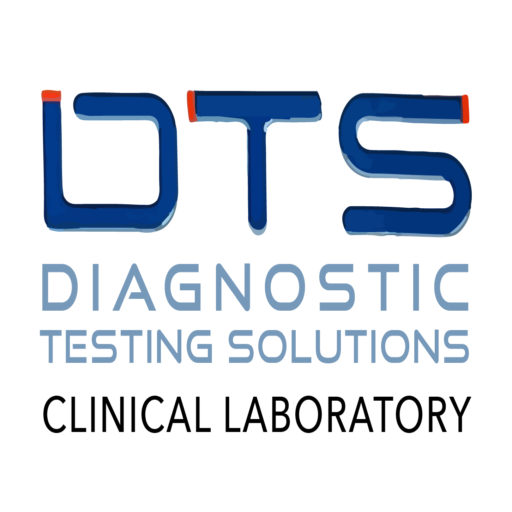
General health panel blood tests are a common method of assessing overall health. These tests, which include a series of blood tests, provide a broad look at your body’s internal processes, helping detect issues early and monitor ongoing conditions. But are these tests safe, and how do you prepare for them?
What Are General Health Panel Tests?
A general health panel blood test typically includes several key tests that measure important health markers. These markers help your doctor understand your overall health and detect potential problems before they become more serious.
Common Components of a General Health Panel Blood Test:
- Complete Blood Count (CBC): Measures red and white blood cells, hemoglobin, and platelets.
- Comprehensive Metabolic Panel (CMP): Evaluates liver and kidney function, glucose levels, and electrolytes.
- Lipid Panel: Monitors cholesterol levels, including HDL (good cholesterol) and LDL (bad cholesterol).
- A1C Test: Tracks blood sugar levels over the past 2-3 months, essential for diagnosing and monitoring diabetes.
Each test gives vital information about your body’s internal health, helping doctors catch diseases like diabetes, heart disease, and kidney issues early on.
Why Should You Get a General Health Panel Blood Test?
These tests are more than just a routine checkup. They offer a window into your overall health and help prevent potential complications. Here’s why you should consider getting a health panel test:
- Early Detection: Many health conditions, such as high cholesterol, diabetes, or kidney problems, show no symptoms in their early stages. Testing helps catch these issues early when they are easier to manage.
- Monitoring Chronic Conditions: If you have conditions like high blood pressure or diabetes, regular health panel tests help track how well treatments are working.
- Health Baseline: For healthy individuals, these tests provide a baseline of your health, allowing your doctor to track changes over time and offer personalized advice.
Benefits for Different Groups:
- Adults Over 40: The risk of chronic diseases increases with age, making regular tests more important.
- People with a Family History of Chronic Conditions: Testing can catch early warning signs, allowing for preventive measures.
- Anyone Experiencing Unexplained Symptoms: These test results can often explain fatigue, weight changes, or other unusual symptoms.
Are General Health Panel Blood Tests Safe?
Yes, general health panel tests are very safe. These tests involve a simple blood draw, which is routine and low-risk for most people.
What to Expect:
- Mild Discomfort: You may feel a small pinch when the needle is inserted, but this discomfort is usually brief. Some people may experience slight bruising or swelling at the site.
- Low Infection Risk: Blood draws are performed using sterile, single-use needles. Healthcare professionals follow strict protocols to ensure that the risk of infection is extremely low.
Who Might Face Higher Risks?
If you have a bleeding disorder or are taking blood thinners, you should inform your healthcare provider beforehand. These conditions might require additional precautions, but serious complications are rare.
How to Prepare for a General Health Panel Blood Test
Proper preparation can ensure more accurate results and make the test smoother. Follow these steps to get ready for your test:
- Fasting Requirements:
Some tests, like the Lipid Panel and CMP, require fasting 8-12 hours before the test to get accurate results. During this time, you should avoid food and beverages other than water.
Why Fasting is Important: Eating can affect your blood sugar and cholesterol levels, leading to inaccurate results.
- Stay Hydrated:
Drinking plenty of water before your test helps make it easier to find a vein, which can make the blood draw quicker and less uncomfortable.
- Medication:
Inform your healthcare provider about any medications you take, as some can affect the results. They may recommend stopping certain medications temporarily before the test, particularly those that impact liver or cholesterol levels.
- Dress Comfortably:
Wear a short-sleeve or easily adjustable long-sleeve shirt to allow easy access to your arm for the blood draw.
What Happens During the Test?
Understanding the components of a general health panel can help you better prepare for the process. Typically, the test includes a variety of screenings that check important health markers like cholesterol, liver function, and glucose levels. These components provide a comprehensive overview of your overall health, allowing for early detection of potential issues.
Here’s a quick look at what you can expect when you go for a general health panel test:
- Check-in: You’ll arrive at the clinic or lab and provide any necessary medical history.
- Blood Draw: A healthcare professional will draw blood from a vein in your arm, usually taking just a few minutes.
- Post-Test: After the blood is drawn, the site will be bandaged, and you can go about your day as usual. There’s no downtime required.
Results are typically available within a few days, and your healthcare provider will discuss them with you to explain what the results mean and if any follow-up is necessary.
Who Should Get General Health Panel Blood Tests?
General health panel blood tests are beneficial for everyone, but some people should consider getting them more regularly:
- Adults Over 40: As you age, the risk of diabetes, high blood pressure, and high cholesterol increases. Regular tests help catch these conditions early.
- People with Chronic Conditions: If you have diabetes or heart disease, these tests help monitor your treatment progress and detect any complications.
- Healthy Individuals for Preventive Care: Even if you’re feeling healthy, a yearly test can provide peace of mind and catch potential problems before symptoms appear.
Are There Any Side Effects of General Health Panel Blood Tests?
While general health panel tests are very safe, there are a few minor side effects you might experience after the blood draw:
- Bruising: It’s common to experience slight bruising when the needle is inserted. This usually clears up within a day or two.
- Lightheadedness: Some people feel faint or dizzy after a blood draw, especially if they’ve been fasting. Sitting down for a few minutes after the test usually resolves this.
If you feel unusual discomfort or prolonged swelling, contact your healthcare provider.
How Often Should You Get a General Health Panel Blood Test?
The frequency of testing depends on your health and risk factors:
- Healthy Adults: Once a year is typically enough for routine monitoring.
- People with Chronic Conditions: If you have diabetes, high cholesterol, or hypertension, your doctor may recommend testing every 3-6 months to ensure your treatment is effective.
- High-Risk Individuals: If you have a family history of heart disease or diabetes, more frequent tests may be necessary to catch any signs early.
Conclusion:
In conclusion, general health panel blood tests are safe and effective, providing essential insights into your overall health. The process is quick and low-risk, with minor discomfort that resolves quickly. These tests are a crucial part of preventive healthcare, allowing you to catch potential issues early, monitor ongoing conditions, and make informed decisions about your health.
It’s important to remember that health panel tests for children are equally vital in detecting health issues early in a child’s development. Regular testing ensures you stay proactive about your health and catch any changes before they become more serious, both for yourself and your family.
FAQ’s
What does a general health panel blood test show?
A general health panel shows key health markers, including red and white blood cell counts, liver and kidney function, cholesterol levels, blood sugar, and electrolytes. It helps detect conditions like anemia, diabetes, and heart disease.
What not to do before a blood panel?
Before a blood panel:
- Avoid eating or drinking (except water) for 8-12 hours if fasting is required.
- Refrain from intense exercise, smoking, or taking certain medications that may affect test results.
- Always follow your healthcare provider’s instructions.
What does a general health blood test check for?
A general blood test checks for various health indicators, including cholesterol levels, blood sugar, organ function (liver, kidney), electrolytes, and blood cell counts. It helps monitor overall health and detect potential issues early.
Are blood tests safe?
Yes, blood tests are very safe. The procedure involves minimal risks, such as mild bruising or discomfort at the needle site. Serious complications, like infection, are extremely rare when performed by trained professionals.






